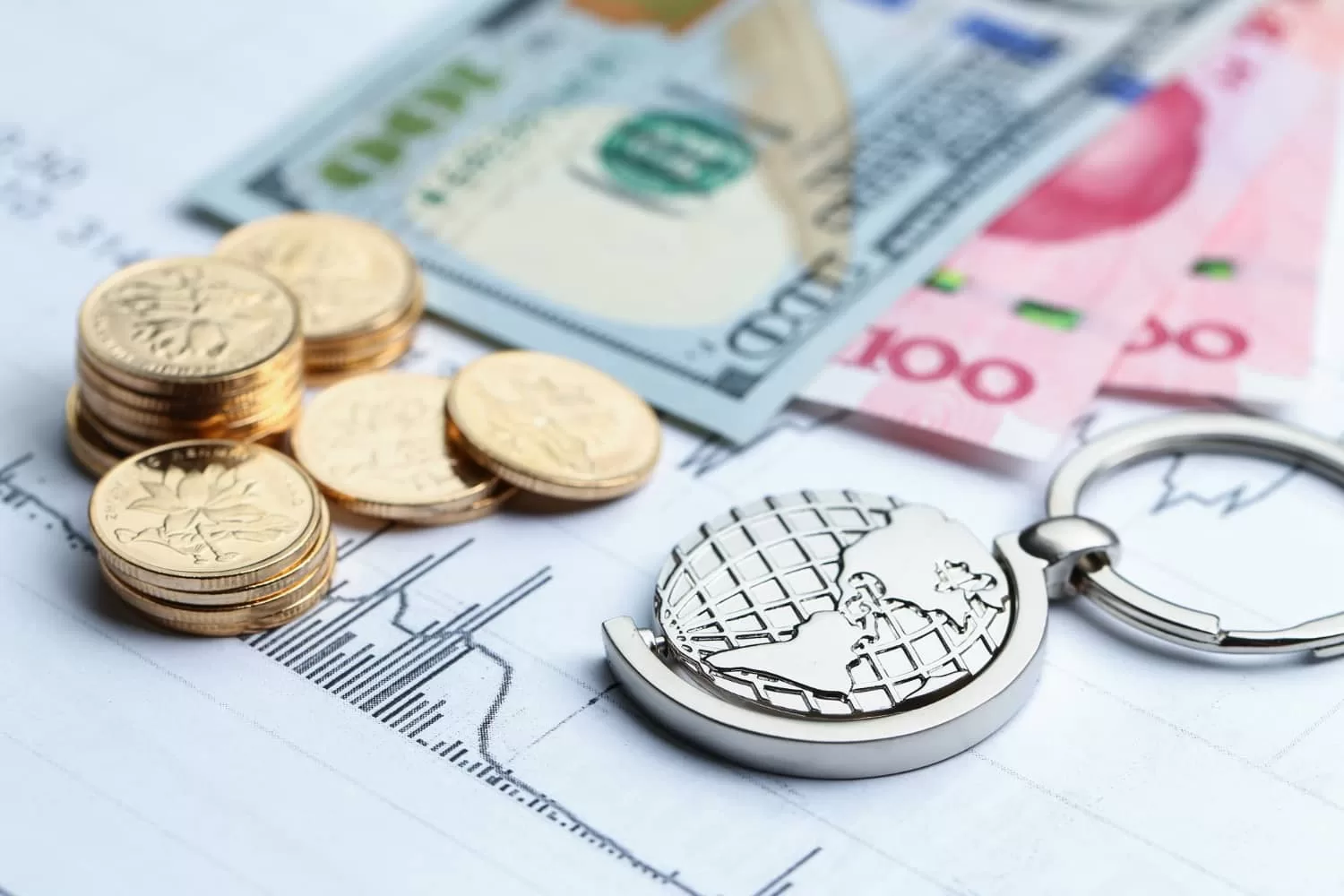Each investor wants growth, but in ASEAN, the competition is real. Often underrated, foreign direct investment in Indonesia is starting to shift perception with its growing market. If you are eyeing new ground with untapped potential, let’s explore how investing in Indonesia can shape your long-term success in the ASEAN market!
What is Foreign Direct Investment?
Foreign Direct Investment, or FDI, is an investment made by a business or government from one country into a company or productive assets in another. Unlike short-term portfolio investment, foreign direct investment involves lasting interest, typically signified by ownership of at least 10% of voting shares. For investors, it brings the advantage of tapping into high-potential markets with strategic benefits like resource access, labor scalability, or emerging consumer bases.
Key Insights Investors Need to Know About Foreign Direct Investment in Indonesia

Foreign Direct Investment in Indonesia operates under specific regulations designed to create a transparent, fair, and structured environment for both domestic and international investors. Here are all the things you should know:
1. Legal Framework and Business Structure
To operate in Indonesia, FDI must be formalized through an Indonesian legal entity (PT), under Indonesian law, and based within the country, unless otherwise stipulated by law. Investors are required to follow one of three methods for establishing FDI, as detailed in Article 5, paragraph (3) of the same law:
- Taking shares at the time of company establishment.
- Purchasing shares.
- Other legal methods based on regulations.
2. Minimum Capital Requirements
Investors must allocate a minimum capital investment of IDR 10 billion (excluding land and buildings), as per Article 7, paragraph (1) of Perpres 10/2021. This requirement ensures that investments are substantial enough to contribute to Indonesia’s economic growth, while also maintaining financial integrity.
3. Business Sectors Open for Foreign Direct Investment in Indonesia
FDI in Indonesia is flexible, with a range of sectors open for investment, as defined in Article 3, paragraph (1) of Perpres 10/2021. These sectors are categorized into:
- Priority sectors.
- Sectors designated for partnership with cooperatives and SMEs.
- Sectors with specific requirements.
- Other sectors not covered by the above categories.
Additionally, there are closed business sectors, as outlined in Article 2, paragraph (2) of Perpres 49/2021, which include:
- Certain activities that are prohibited by law (such as alcohol production).
- Sectors that cannot be operated by private entities, including strategic services related to national defense and security.
Why Indonesia’s FDI Growth Signals a High-Potential Market for Investors?
In 2024 alone, foreign direct investment in Indonesia reached USD 55.3 billion (around Rp900.2 trillion)—a 21% increase from the previous year. This growth is driven by three key factors:
- A large and youthful domestic market.
- Rich natural resources across diverse sectors.
- Ongoing reforms are improving the ease of doing business.
Despite contributing nearly 40% of ASEAN’s GDP, Indonesia captures only 14-15% of the region’s total FDI. This signals an untapped opportunity for investors eyeing future-facing markets.
Which Sectors Are Open to 100% Foreign Ownership in Indonesia?
The business sector is open to 100 percent foreign investment unless it is subject to a specific limitation. Presidential Regulation 10 of 2021, as amended by President Regulation No. 49 of 2021 (PR 49/2021), liberalizes many business sectors for foreign investment. Dubbed the positive investment list, PR 49/2021 liberalizes over 200 business lines to encourage global investors to contribute to high-potential sectors without the need for local shareholding.
Here are several strategic sectors currently open to 100% foreign ownership under Indonesia’s latest investment guidelines:
- Agriculture – Includes crop farming, livestock, and aquaculture.
- Manufacturing – Covers industries like textiles, electronics, furniture, and garments, giving investors access to one of Southeast Asia’s largest production hubs.
- Construction – Involves large-scale projects such as roads, buildings, and infrastructure, ideal for investors aligned with Indonesia’s rapid urban expansion.
- Transportation – Encompasses services like air travel, maritime logistics, and freight companies.
- Telecommunications – Opens access to digital services including internet providers, mobile networks, and IT infrastructure.
- Tourism – Includes hotel chains, travel services, and hospitality businesses, particularly in top destinations like Bali and Labuan Bajo.
- Education – Covers formal institutions from international schools to higher education, supporting the country’s push for globalized learning.
- Healthcare – Enables investments in hospitals, clinics, and diagnostic centers.
- Financial Services – Covers banking, insurance, and fintech—positioning Indonesia as a fast-growing digital finance market in ASEAN.
- Information Technology – Offers space for software development, IT consulting, and tech-driven solutions across industries.
These sectors are highly attractive options for foreign direct investment in Indonesia, since they provide full control, reduced entry barriers, and long-term growth potential.
What Are the Tax Incentives and Benefits for Foreign Direct Investment in Indonesia?

For global businesses seeking long-term value, Indonesia offers an extensive package of tax benefits designed to reduce costs, streamline entry, and strengthen competitiveness. If you are considering foreign direct investment in Indonesia, these are the most relevant fiscal advantages:
- Tax Holiday
Eligible businesses in pioneer industries can benefit from a 100% Corporate Income Tax (CIT) exemption for 5 to 20 years, depending on investment value and sectors. This applies to capital investments starting from IDR 500 billion (approximately USD 33.3 million).After the tax-free period, a 50% CIT reduction is granted for two more years. For medium-scale investments between IDR 100 and 500 billion, a 50% reduction is available for five years, followed by 25% for the next two. This improved cash flow, especially beneficial during business setup and early operations. - Tax Allowances
When a tax holiday is not applicable, investors may access structured tax allowances. These include a 30% reduction in taxable income, calculated from investment value in fixed assets spread across six years. It also offers accelerated depreciation and loss carry-forward benefits of up to 10 years. Additionally, dividend withholding tax for non-residents is set at 10%, and may be lower with tax treaties. These incentives help businesses reduce taxable profits while supporting long-term planning and capital reinvestment. - Incentives for Special Economic Zones (SEZs)
Investors operating in Indonesia’s Special Economic Zones can benefit from a complete exemption of corporate income tax for investments starting at IDR 100 billion. In addition to income tax relief, SEZ businesses enjoy exemptions from Value Added Tax (VAT), import duties, and excise taxes. They also receive simplified licensing processes and access to favorable land use rights. - Incentives for Job Creation, Training, and R&D
Indonesia rewards investments that build human capital and foster innovation. Companies in labor-intensive sectors can reduce net income by up to 60% based on tangible investments. For R&D, tax deductions can go up to 300% of qualifying expenses. Training and skill development programs also receive up to 200% in deductions. - Incentives for Investment in the New Capital (IKN Nusantara)
To support the development of IKN Nusantara, Indonesia’s new capital city, the government offers generous long-term incentives. Depending on the business sector and investment value, companies can enjoy a corporate income tax exemption for 10 to 30 years. Additionally, investors receive extended land use rights of up to 190 years and long-term stay permits for foreign workers valid for up to 10 years. During the construction and development phase, customs exemptions also apply to imported goods used for infrastructure and capital projects in the IKN area.
How Competitive is Foreign Direct Investment in Indonesia Compared to Other ASEAN Countries?
As one of the largest and most dynamic economies in Southeast Asia, Indonesia offers a wealth of potential for investors. However, when compared to its ASEAN neighbors, there are certain areas where the country shows both strong promise.
| Factor | Indonesia | Singapore | Vietnam | ASEAN Average |
| FDI Inflows & Market Size | USD 55 billion in 2024, a growing market of 280 million people. | Leading in FDI inflows with advanced infrastructure. | Strong FDI growth, especially in manufacturing and technology. | USD 230 billion in 2023, with a major portion going to key economies like Singapore and Vietnam. |
| Sectoral Strengths | Strong in mining, manufacturing, and digital sectors; emerging in renewable energy. | Diverse, with strengths in tech, finance, and trade. | Strong in manufacturing, particularly electronics and textiles. | Focus on manufacturing, technology, and infrastructure. |
| Regulatory Environment | Improvements with the Omnibus Law, but still complex compared to peers. | Streamlined regulations, ease of doing business. | Reforms are underway, but bureaucracy is still present. | Varies; generally simpler in Singapore and Malaysia. |
| Investment Climate & Risks | Large market, abundant resources, but challenges with infrastructure and regulatory uncertainty. | Stable, low-risk environment with minimal political or regulatory hurdles. | Strong growth but some political and infrastructure risks. | Mixed; some regions offer stable environments, others face challenges. |
| Regional Integration & Intra-ASEAN Investment | Benefits from ASEAN integration, but lags behind Singapore and Vietnam in attracting intra-ASEAN investments. | A regional leader in intra-ASEAN investment, attracting diverse sectors. | Gaining traction in intra-ASEAN investments, particularly in manufacturing. | Enhanced investment flow under ASEAN Economic Community (AEC) initiatives. |
| FDI Stock & Growth Potential | Accounts for 14-15% of ASEAN’s total FDI, with room for growth. | Dominates ASEAN’s FDI stock, with high per capita investment. | Rapid FDI growth, attracting diverse sectors and capital. | Significant growth potential across the region. |
Why Is Having an Integrated Development Partner Important for Foreign Direct Investment Success in Indonesia?

Entering a new market is about navigating the landscape with the right foundation. Subang Smartpolitan can act as a strategic industrial estate to support your business every step of the way.
Do you want to build from scratch or plug into an industrial estate to help your investment grow, adapt, and compete? Subang Smartpolitan gives you that advantage with its 2,717 hectare development, blending industrial zones, commercial areas, residential township that combines work, living, learning, and recreational facilities into one holistic ecosystem.
Built for Industry 4.0, it features advanced technologies such as Internet of Things (IoT), smart grid systems, and sustainable water and wastewater management—all designed for sustainable growth and business success.
Now is the time to explore the opportunities, visit subangsmartpolitan.com!
FAQ
- How has Indonesia’s liberalization policy affected FDI?
The liberalization policy has opened many previously restricted sectors to foreign investors, improved the ease of doing business, increased FDI inflows, and diversified investment sources and sectors, making Indonesia more competitive in ASEAN.
- How does Indonesia handle disputes related to FDI?
Disputes involving FDI can be resolved through administrative procedures and courts in Indonesia, with some investors also able to access international arbitration depending on treaties and agreements.
- What are the main risks foreign investors should consider?
Investors should be aware of regulatory complexity, bureaucratic procedures, political and economic risks, and sector-specific restrictions. Understanding local laws and engaging with government authorities are essential for mitigating these risks.
- How does Subang Smartpolitan facilitate business operations for foreign investors?
It offers integrated one-stop licensing and business support services, digital platforms for streamlined administration, and comprehensive infrastructure to ensure smooth business setup and operation.
- Which major international companies have chosen Subang Smartpolitan for their investments?
BYD, a global leader in electric vehicle manufacturing, is the largest tenant in Subang Smartpolitan, occupying over 108 hectares.


